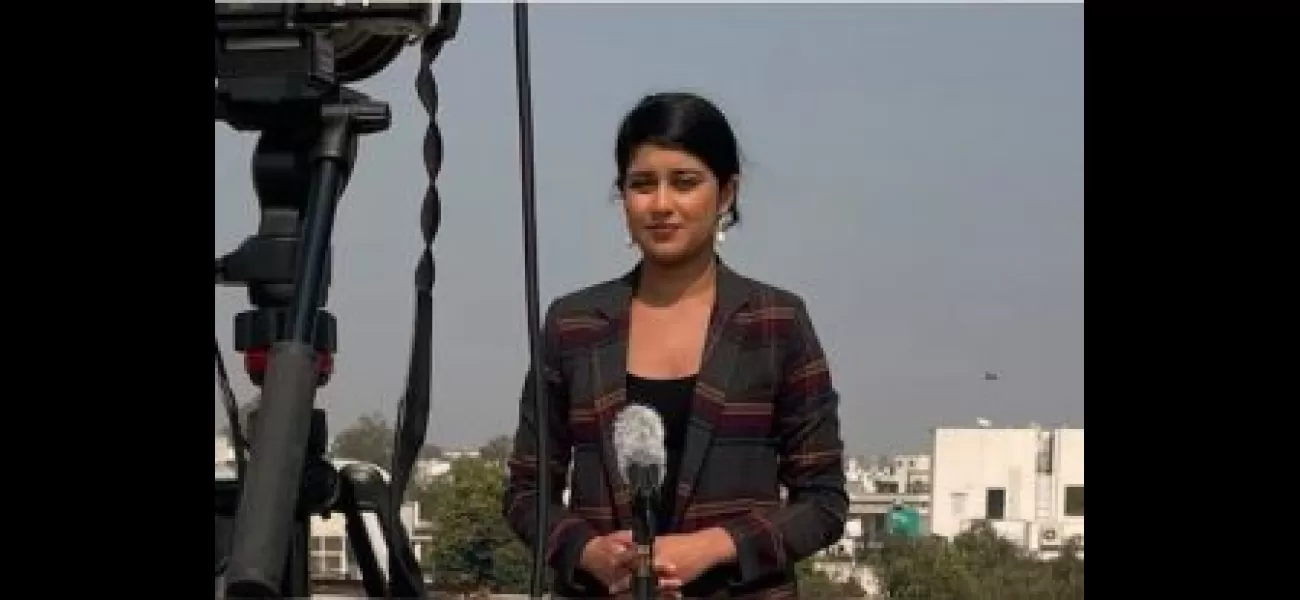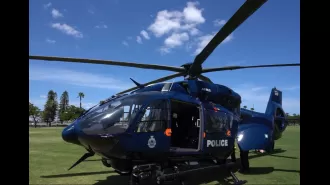US responds to Australian journalist's visa denial, stating that India is capable of discussing its own visa policy.
US refrains from commenting on India's visa dispute with an Australian journalist, stating that it is up to New Delhi to speak about its own visa policies.
April 26th 2024.

The United States has chosen not to comment on the recent allegations regarding India's decision to deny a visa renewal for an Australian journalist. According to a State Department spokesperson, New Delhi is the appropriate authority to discuss its own visa policies. The journalist in question, Avani Dias, had been serving as the South Asia Bureau Chief for the Australian Broadcasting Corporation until her departure from India on April 19. In a statement made on Tuesday, she claimed that her visa extension had been denied due to her reports "crossing a line."
Dias elaborated on her experience in a post on social media platform, 'X'. "After the Australian government intervened, I was granted a mere two-month extension," she wrote. "This came less than 24 hours before my scheduled flight. In addition, I was informed that my accreditation for the elections would not be processed due to a directive from the Indian Ministry. It was disheartening to leave on the first day of the national elections in a country that prides itself on being 'the mother of democracy' according to Prime Minister Modi."
In response to these accusations, State Department Deputy Spokesperson Vedant Patel stated, "The Indian government is responsible for addressing any concerns regarding their visa policies. As a general rule, we have consistently emphasized the vital role that a free press plays in a democratic society. This is why we regularly hold press conferences to answer questions. However, I will leave it to the Indian officials to address this specific situation."
Sources within the Indian government have denied Dias' claims, stating that she violated visa regulations while carrying out her professional duties. They clarified that despite this, her request for an extension was granted for the purpose of covering the elections. Her previous visa had been valid until April 20, but she chose to leave the country on April 19. "Avani Dias' statement that she was not allowed to cover the elections and was forced to leave the country is completely false, misleading, and malicious," a source in New Delhi stated.
According to the sources, Dias had paid the visa fee on April 18, and her extension was approved until the end of June on the same day. However, she opted to leave India on April 20. At the time of her departure, she possessed a valid visa, and her visa extension had been approved. The sources also clarified that Dias' statement about not being allowed to cover the elections was incorrect. Journalists with valid visas are permitted to cover election activities outside of polling booths.
In conclusion, it seems that there are conflicting reports about the circumstances surrounding Avani Dias' departure from India. While she claims that her visa extension was denied and she was forced to leave, government sources state that her allegations are false and that her visa was extended until the end of June. Despite this, the matter remains contentious and open to interpretation.
Dias elaborated on her experience in a post on social media platform, 'X'. "After the Australian government intervened, I was granted a mere two-month extension," she wrote. "This came less than 24 hours before my scheduled flight. In addition, I was informed that my accreditation for the elections would not be processed due to a directive from the Indian Ministry. It was disheartening to leave on the first day of the national elections in a country that prides itself on being 'the mother of democracy' according to Prime Minister Modi."
In response to these accusations, State Department Deputy Spokesperson Vedant Patel stated, "The Indian government is responsible for addressing any concerns regarding their visa policies. As a general rule, we have consistently emphasized the vital role that a free press plays in a democratic society. This is why we regularly hold press conferences to answer questions. However, I will leave it to the Indian officials to address this specific situation."
Sources within the Indian government have denied Dias' claims, stating that she violated visa regulations while carrying out her professional duties. They clarified that despite this, her request for an extension was granted for the purpose of covering the elections. Her previous visa had been valid until April 20, but she chose to leave the country on April 19. "Avani Dias' statement that she was not allowed to cover the elections and was forced to leave the country is completely false, misleading, and malicious," a source in New Delhi stated.
According to the sources, Dias had paid the visa fee on April 18, and her extension was approved until the end of June on the same day. However, she opted to leave India on April 20. At the time of her departure, she possessed a valid visa, and her visa extension had been approved. The sources also clarified that Dias' statement about not being allowed to cover the elections was incorrect. Journalists with valid visas are permitted to cover election activities outside of polling booths.
In conclusion, it seems that there are conflicting reports about the circumstances surrounding Avani Dias' departure from India. While she claims that her visa extension was denied and she was forced to leave, government sources state that her allegations are false and that her visa was extended until the end of June. Despite this, the matter remains contentious and open to interpretation.
[This article has been trending online recently and has been generated with AI. Your feed is customized.]
[Generative AI is experimental.]
0
0
Submit Comment





